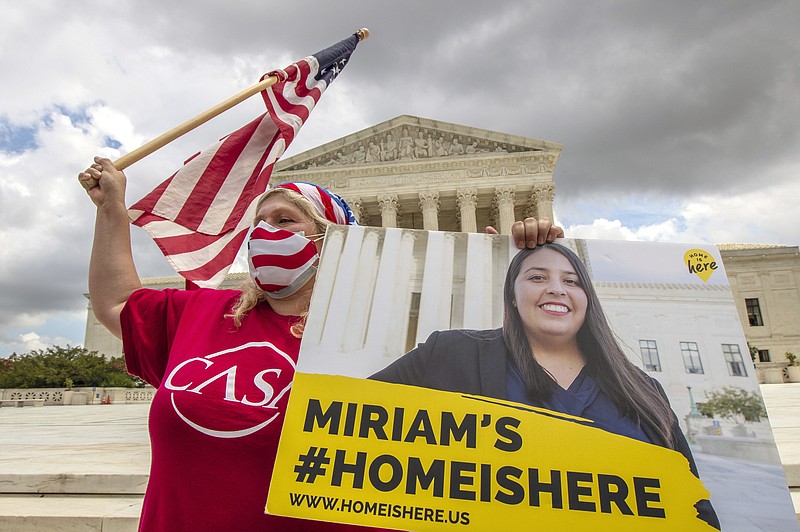WASHINGTON -- The Trump administration said Tuesday that so-called Dreamers who have already had DACA protections will be allowed to renew their status under the program for one year, rather than two, and they said that first-time applicants to the program would be rejected.
A White House official confirmed the announcement. New applications were put on hold when the Trump administration moved to end the Deferred Action for Childhood Arrivals program in September 2017 but two-year renewals have continued, with about 700,000 people currently covered.
The Supreme Court ruled last month that the administration failed to follow rule-making procedures when it tried to end the program but kept a window open for the president to try again. The White House has been studying the ruling to try again to end DACA -- though it was not immediately clear whether the move would be undertaken before November's election.
A federal judge in Maryland ruled earlier this month that DACA should be restored to the original form before September 2017, but the administration was mum until Tuesday on whether it would start accepting new applications. The White House anticipates legal challenges.
The president has argued that DACA was an illegal use of executive authority by his predecessor, former President Barak Obama. Obama created the DACA program by executive fiat in 2012 after Congress refused to provide a permanent path to citizenship for young immigrants brought into the country illegally.
But Trump has wavered about what should be done to the hundreds of thousands of immigrants who benefit from DACA. On July 10, after the court's decision, he offered remarks about his intentions.
"They're going to be part of a much bigger bill on immigration," he said of the DACA recipients in an interview with Noticias Telemundo. "It's going to be a very big bill, a very good bill, and merit-based bill and it will include DACA, and I think people are going to be very happy." He also said that it would "give them a road to citizenship."
The program has strict requirements. To be eligible, applicants have to show that they had committed no serious crimes, had arrived in the United States before they turned 16 and were no older than 30, had lived in the United States for at least the previous five years, and were in school, had graduated from high school or had received a General Educational Development certificate, or were honorably discharged from the military.
Trump has at times expressed sympathy for the immigrants who are protected by the program even as he denounced it as an illegal use of presidential authority.
Information for this article was contributed by Zeke Miller and Jill Colvin of The Associated Press; and by Michael D. Shear and Zolan Kanno-Youngs of The New York Times.

